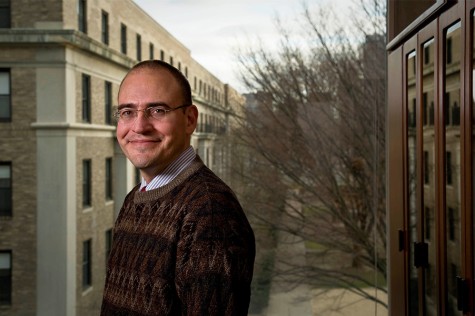Richard Braatz, Edwin. R. Gilliland Professor, Massachusetts Institute of Technology, USA, will give the above talk on:
19.04.2023 (Wednesday)
15:45 – 17:00 (including discussion)
Building S3|11 Room 0012 and via Zoom
Abstract
This presentation provides an introduction to the optimal control of (bio)pharmaceutical manufacturing systems. Challenges and opportunities are described for (1) microscale technologies for high-speed continuous processing, (2) plug-and-play modular unit operations with integrated monitoring and control systems, (3) dynamic modeling of unit operations and entire biopharmaceutical manufacturing plants to support process development and plant-wide control, and (4) model-based control technologies for optimizing startup, changeover, and shutdown. The main control challenges involve addressing the uncertainties, nonlinearities, time delays, non-minimum phase behavior, constraints, spatial distributions, and mixed continuous-discrete operations that arise in biopharmaceutical operations. The design of nonlinear, adaptive, and hybrid control strategies for addressing these challenges is described for several distinct case studies in which the controls are experimentally implemented.
Short CV
Richard D. Braatz is the Edwin R. Gilliland Professor at the Massachusetts Institute of Technology (MIT) where he does research in applied mathematics and robust optimal control theory and its application to advanced manufacturing systems. He received an MS and PhD from the California Institute of Technology and was a Professor at the University of Illinois at Urbana-Champaign and a Visiting Scholar at Harvard University before moving to MIT.
Richard formerly served as the Editor-in-Chief of IEEE Control Systems Magazine, the President of the American Automatic Control Council, General Chair of the IEEE Conference on Decision and Control and of the American Control Conference, and Vice-Chair of the IFAC Conference Board. His research has been recognized by the AACC Donald P. Eckman Award, the Antonio Ruberti Young Researcher Prize, and best paper awards from IEEE- and IFAC-sponsored control journals. He is a Fellow of IEEE and IFAC and a member of the U.S. National Academy of Engineering.
Guests via Zoom are welcome:
Meeting Link: https://tu-darmstadt.zoom.us/j/65324628051?pwd=ZXQyZk1EYkExa01BMlVMU2hPRjRUUT09
Meeting ID: 653 2462 8051
Pass Code: 569811





